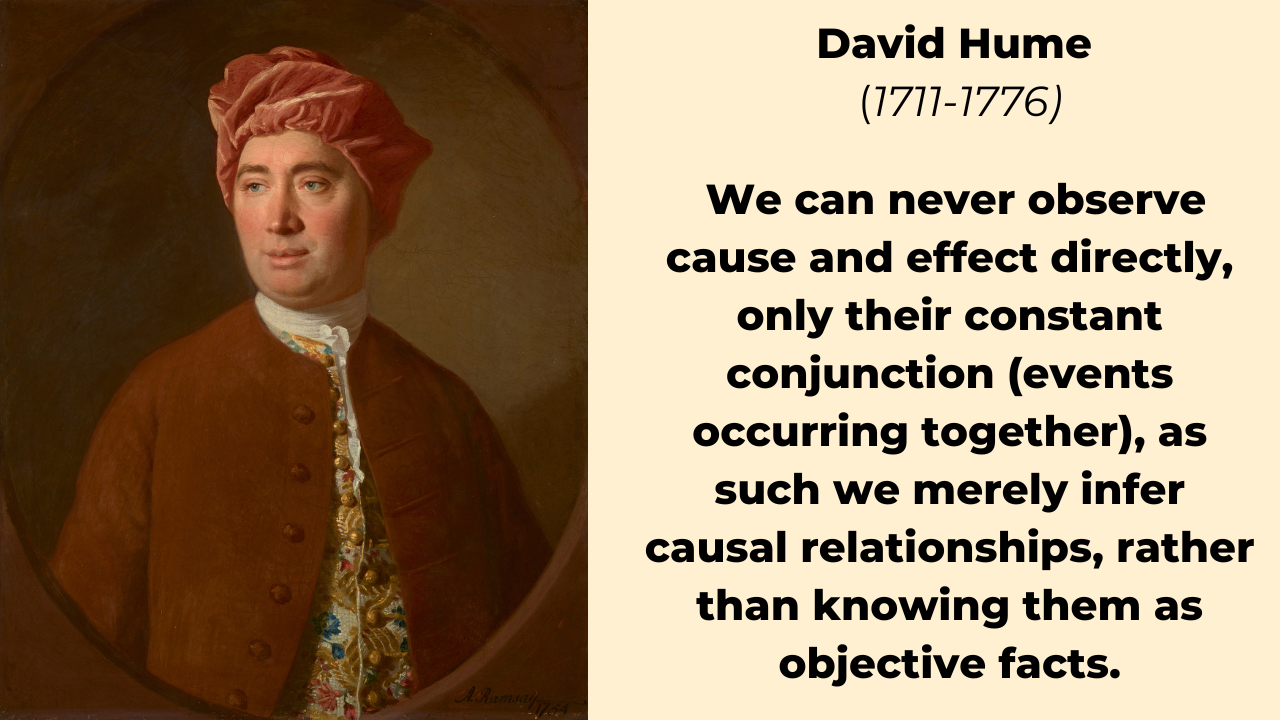Cause & Effect in ToK
Establishing cause and effect in ToK underpins so much of ToK, it’s at the heart of Areas of Knowledge (AoKs) Natural Sciences, Human Sciences, Mathematics, and History. Many of the ToK Essay prescribed titles are centrally concerned with establishing cause and effect, yet causality is not one of the ToK concepts (however most of them are linked to causality). In ToK Cause and Effect is not explicitly mentioned at all in The IB ToK Study Guide, and it’s not built into the course structure as a standalone unit. So, today on ToKToday we’re going to redress that balance - we’re going to look at cause and effect in ToK.
Establishing ToK cause and effect relationships is one of the most significant challenges in the pursuit and production of knowledge. It is a fundamental aspect of reasoning, yet the problems of discerning whether A causes B, or if there are other unseen factors at play, can be difficult to untangle.
Establishing ToK cause and effect relationships is one of the most significant challenges in the pursuit and production of knowledge. It is a fundamental aspect of reasoning, yet the problems of discerning whether A causes B, or if there are other unseen factors at play, can be difficult to untangle.
History of causation
Key epistemologists have long grappled with this issue of cause and effect in ToK. Scottish philosopher David Hume, for example, was sceptical about the idea of causality. He suggested that we can never observe cause and effect directly, only their constant conjunction (events occurring together), as such we merely infer causal relationships, rather than knowing them as objective facts.
Following Hume, Immanuel Kant posited that while we may not directly observe causality, we structure our perceptions based on ToK cause and effect. It's an a priori mental schema that allows us to make sense of the world. Without this cognitive structure, he argued, the world would be a chaotic and incomprehensible stream of experiences.
In more recent times, the philosopher Nancy Cartwright, has critiqued the assumption that laws of nature (often seen as ultimate causes in AoK Natural Sciences) universally apply. She claims that many scientific laws only hold under very specific conditions and can't be easily generalised. This raises questions about whether establishing cause and effect in ToK is as straightforward as it seems in AoK Natural Sciences, one of the fields where this approach is considered most valid.
Some of the problems of establishing cause and effect in ToK include:
Multiple variables interacting to produce an effect - this makes it difficult to isolate the specific variable combinations required to produce that effect.
Identifying the specific conditions in which certain variables are required to produce effects.
Identifying whether the relationship between variables and their effects is directly causal or merely associative.
Establishing whether the variables identified are primary, or whether they themselves are secondary, or tertiary effects etc.
Theories of knowledge production also recognise that cause and effect in ToK may not always be necessary or possible to establish. The reason is that knowledge is produced for different purposes, and its desired end determines the methods used in its production.
Paradigms & History and Cause & Effect
The philosopher of science, Thomas Kuhn, highlighted how scientific paradigms determine what counts as a legitimate cause or effect. Paradigms, or widely accepted scientific frameworks, shape the questions that can be asked, and thus the knowledge that can be produced. When the paradigm shifts, so too do the cause and effect relationships that were once taken for granted.
In other areas of knowledge, cause and effect relationships may be even more elusive. The AoK Human Sciences is characterised by the complexity and variability of human behaviour often makes it difficult to pinpoint singular causes.
In AoK History Historical knowledge rarely fits neatly into ToK cause and effect frameworks. The historian E.H. Carr argued that causes in history are multi-layered, and the idea of a singular cause is more of a heuristic device than an accurate representation of the past.
A few words on The Arts and cause & effect
Moreover, in AoK The Arts, knowledge production may be more concerned with evoking emotional responses, exploring aesthetic values, or generating critique, rather than establishing cause and effect. For instance, a novelist might not need to prove a causal link between a character’s upbringing and their later actions; the focus instead might be on a rich and nuanced portrayal of the character’s experience.
So, while establishing cause and effect can offer powerful explanations, and is central to much of our reasoning, it is not always the ultimate aim nor is it always possible in the production of knowledge. By recognising the limits of cause and effect can help us to better understand the complexity of the world, and to appreciate the many ways that knowledge can be produced and used.
If you want more content to help you with ToK check out the learning resources available on our student resources page. You can contact me for help with your ToK Essay or Exhibition either by Facebook Messenger on the TokToday.com website, or by emailing me Daniel@TokToday.com, more details here.
Stay toktastic my friends.
If you’re doing your ToK Essay you may be interested in:
The Ebook : How to Write the ToK Essay in 6 Easy Steps
If you’re writing your ToK Exhibition Commentary you may be interested in:
Linking the object to the Prompt,







